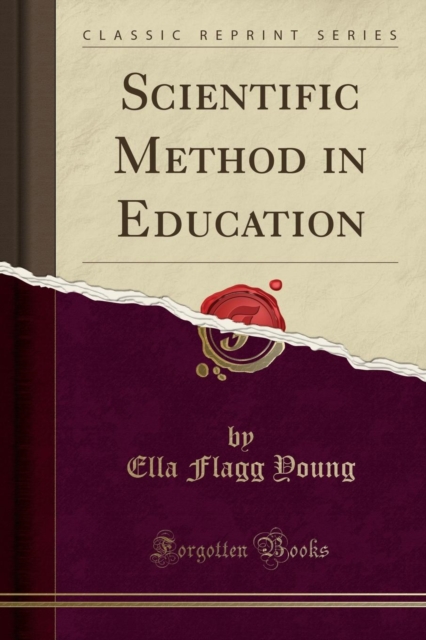Excerpt from Scientific Method in Education
Education has always recognized the fact that the past is involved in a cultivated present; the mistake has been that it has considered information about the past rather than activity in the progress of the past as fundamental. The lesson taught by evolu tion - that life is movement, not rest - has been interpreted as meaning movement in a fixed stage of development, not as movement from simple to complex conditions. With this understanding the theory of the social environment as the true stimulus for consciousness has resulted in the attempt to project the life of the child into a social, ethical, and civil environment which is simply a reduced copy of the life of the present century. This withholds from him those simpler modes of activity which would be the stimuli adapted for the early years of life. For example, it begins the work in manual training with the perfected tools and exact geometrical designs of the skilled mechanic, and so in that development which should be progressive from the early years - as soon as the child has learned to walk and to handle things - constructive activity is deferred until he reaches the higher grammar grades. Nothing can more painfully and perfectly illustrate the failure of this idea of progression in educational theory than the action taken through the suggestions of leaders in education all over the country, action which delays manual and constructive work until children have reached the sixth or seventh grade. Growth from the simple to the complex, and not growth beginning in the complex, is the fundamental in the natural law of life.
Although the theory of the experience of the recapitulation of the race by the individual has been held for centuries, yet it is within very recent years that the ele ment of his activity has been recognized in the word recapitulates. This is illustrated in the fact that Herbart, who first formulated the culture epoch theory as a funda mental ih education, refused to apply it to the learning of the sciences. His refusal to permit in education the possibility of the blundering and absurd theorizing of the past shows that in the main he entertained merely a logical presentation of the history of different peoples. Unwillingness to permit the application of the scientific method in the beginning of the study of science - ia that term we include nature study, physics, chemistry, and mathematics - shows scientific method to be least regarded in the domain in which it originated.
About the Publisher
Forgotten Books publishes hundreds of thousands of rare and classic books. Find more at
www.forgottenbooks.comThis book is a reproduction of an important historical work. Forgotten Books uses state-of-the-art technology to digitally reconstruct the work, preserving the original format whilst repairing imperfections present in the aged copy. In rare cases, an imperfection in the original, such as a blemish or missing page, may be replicated in our edition. We do, however, repair the vast majority of imperfections successfully; any imperfections that remain are intentionally left to preserve the state of such historical works.
Aceasta este o carte in limba engleza. Descrierea cartii (tradusa din engleza cu Google Translate) este in limba romana din motive legale.
Extras din Metoda stiintifica in educatie Educatia a recunoscut intotdeauna faptul ca trecutul este implicat intr-un prezent cultivat; greseala a fost ca a considerat ca informatiile despre trecut, mai degraba decat activitatea din progresul trecutului, sunt fundamentale. Lectia predata de evolutie - ca viata este miscare, nu odihna - a fost interpretata ca insemnand miscare intr-un stadiu fix de dezvoltare, nu ca miscare de la conditii simple la conditii complexe.

